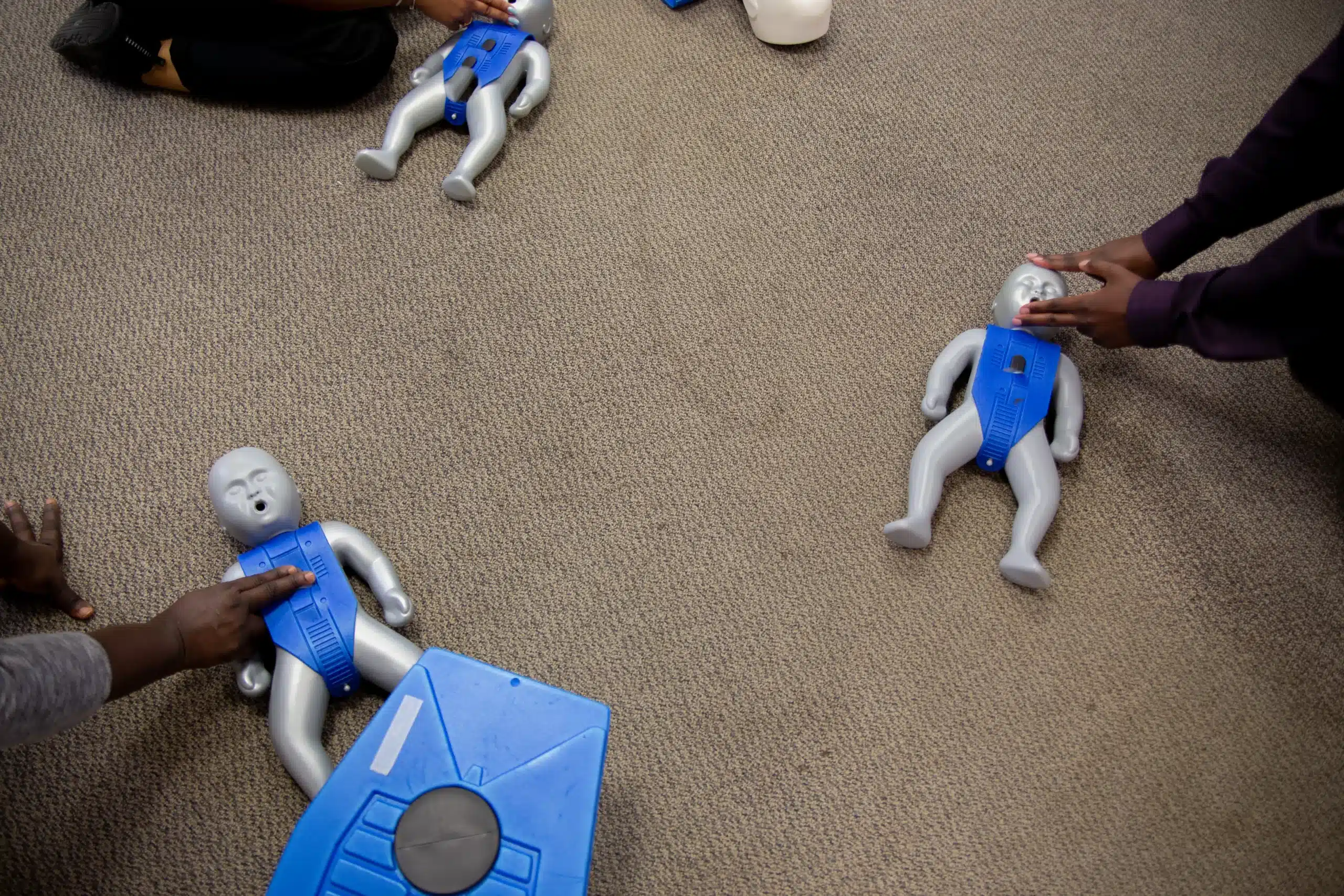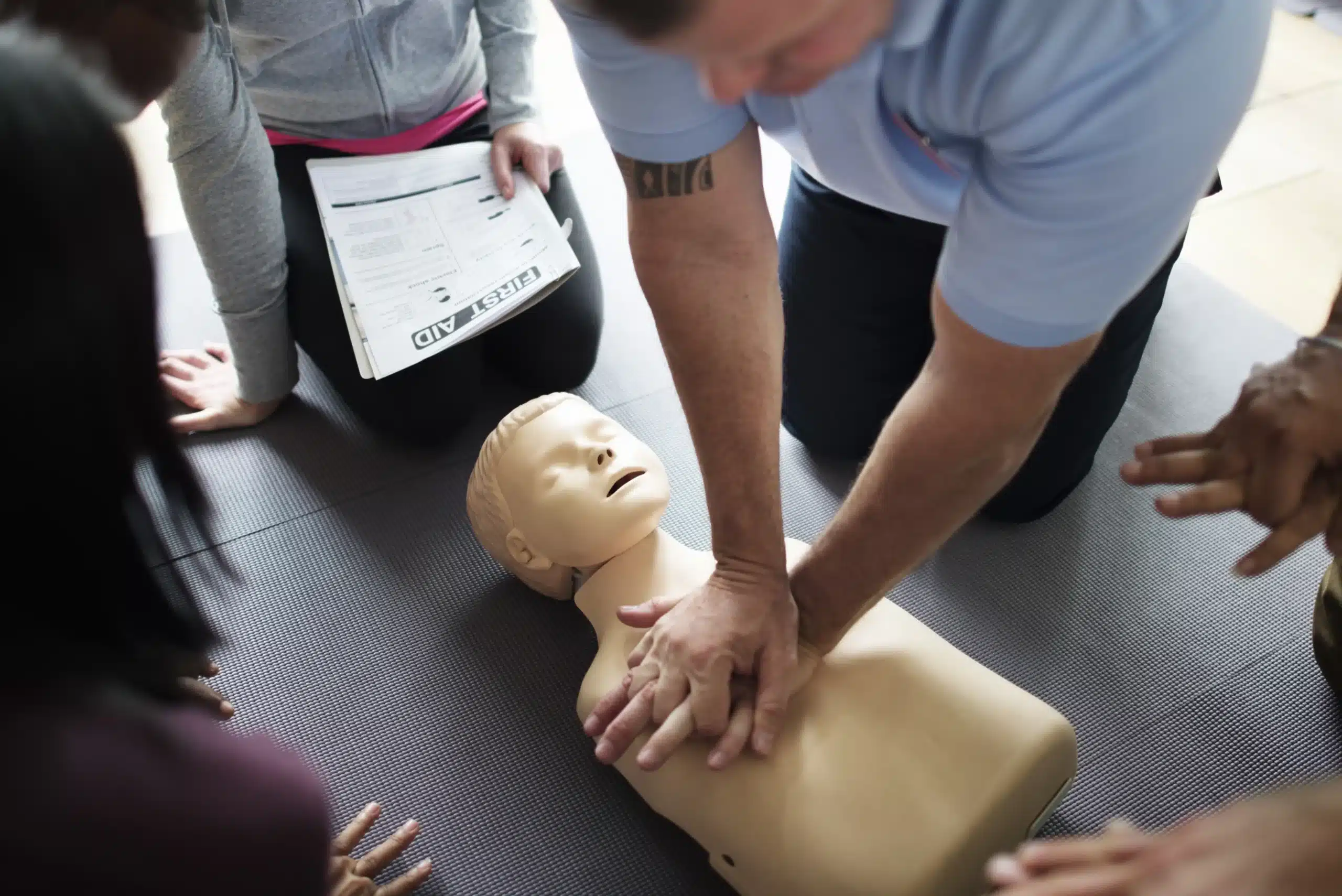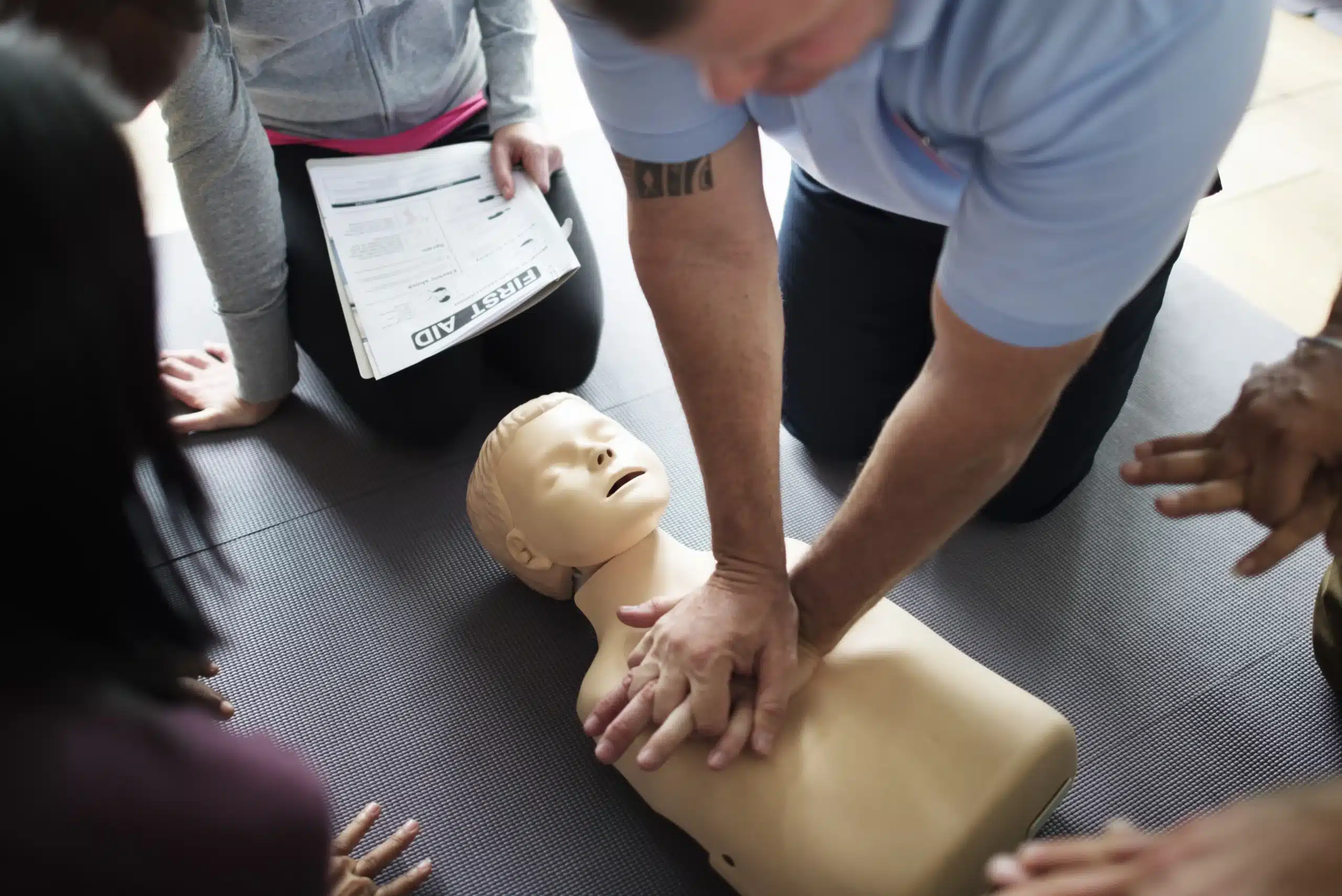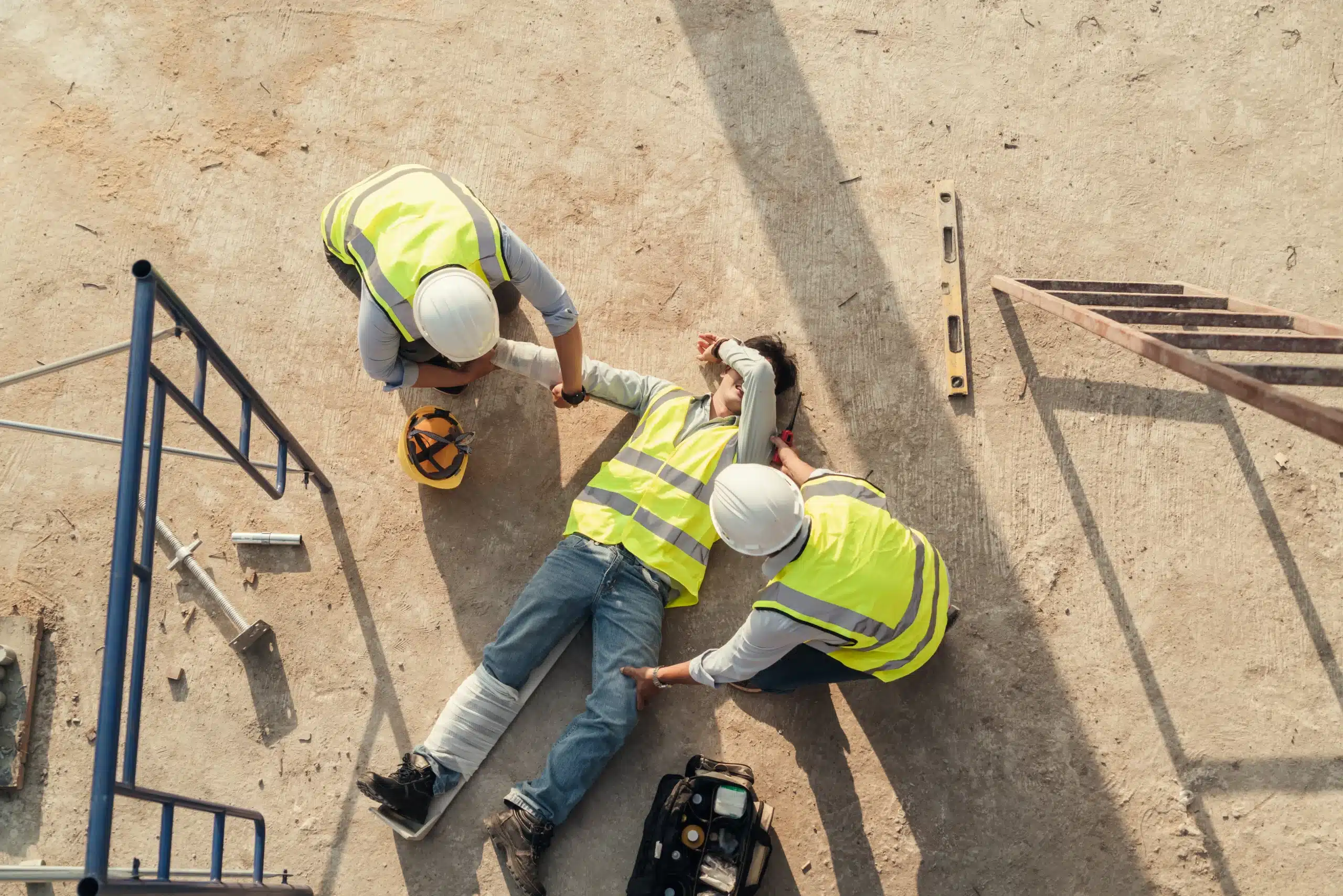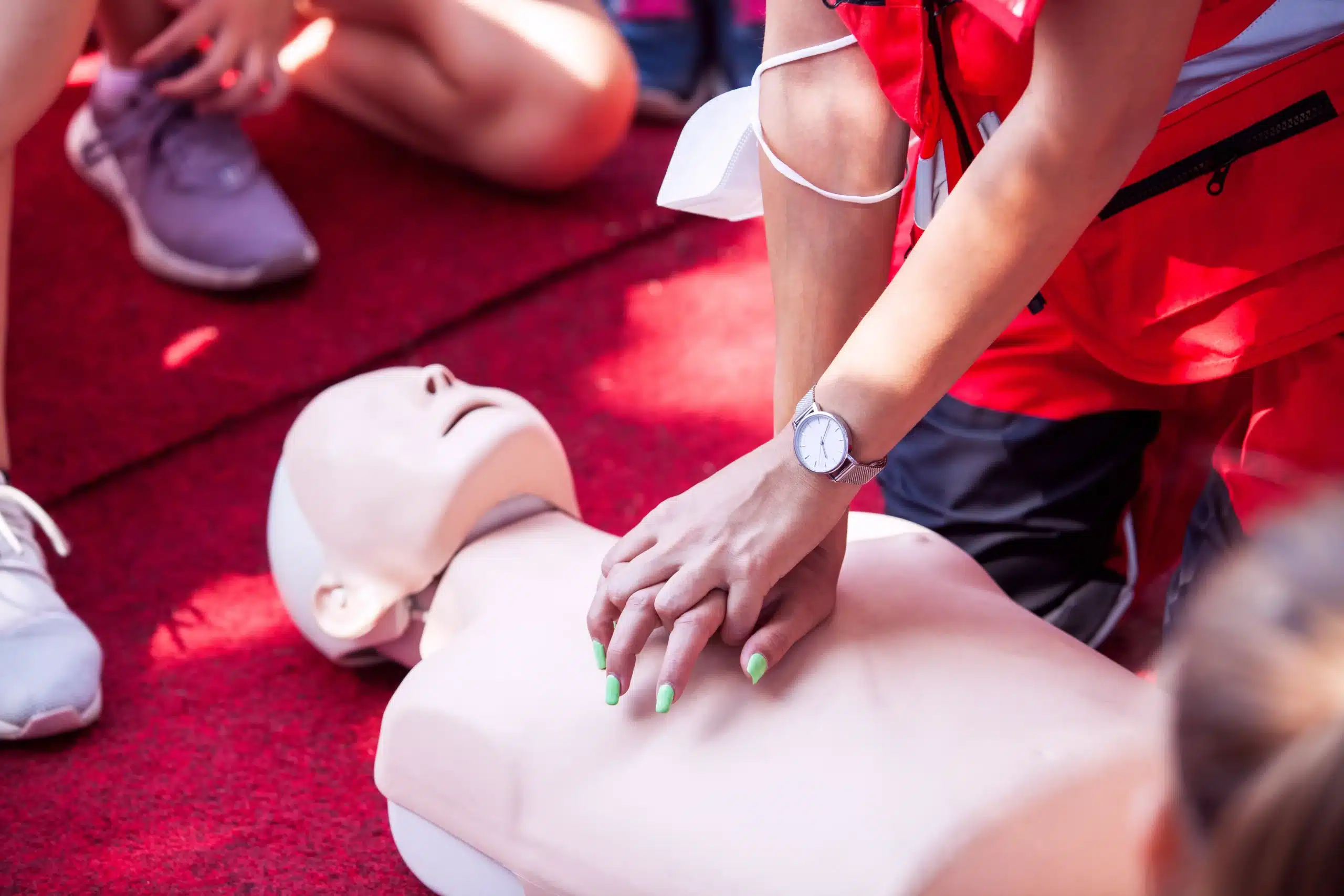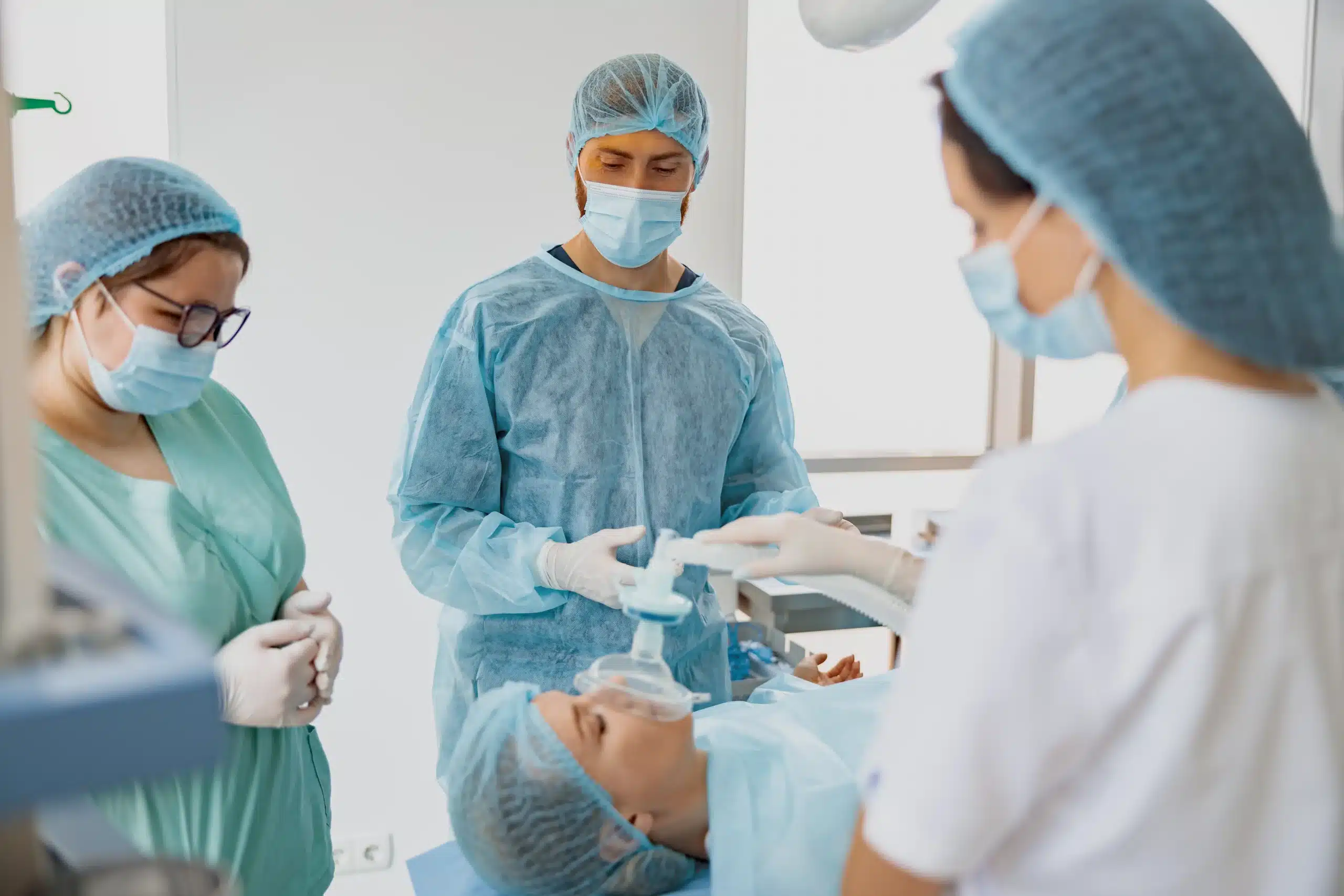Working in healthcare in Palo Alto often means juggling a demanding schedule. Staying current with essential certifications like CPR can be a challenge. RQI (Resuscitation Quality Improvement) offers a solution designed for busy professionals. This article explores the benefits of RQI in Palo Alto, highlighting its flexible, self-directed approach. We’ll delve into how RQI’s low-dose, high-frequency training method helps healthcare providers maintain their skills and confidence, ensuring they’re always prepared to respond effectively in emergencies.
Key Takeaways
- RQI provides a practical approach to CPR training: Short, regular practice sessions make it easier to fit into busy schedules while reinforcing essential skills and building confidence.
- RQI certifications meet industry standards: Aligning with American Heart Association guidelines, RQI courses offer comprehensive training in BLS, ACLS, and PALS, equipping you to handle various medical emergencies.
- Redwood City CPR Classes offers accessible RQI programs: Conveniently located for those in Palo Alto, Redwood City, and Menlo Park, they provide affordable courses with flexible scheduling and group discounts.
What is RQI? CPR Training in Palo Alto
RQI (Resuscitation Quality Improvement) represents a significant advancement in CPR training, especially for healthcare professionals in busy areas like Palo Alto. It’s designed to improve CPR skills and boost confidence in these life-saving techniques. But how exactly does it differ from traditional CPR courses? Let’s take a closer look.
What is RQI and How Does It Differ from Traditional CPR?
Traditional CPR training typically involves a comprehensive course with recertification every two years. While effective, this approach can sometimes lead to skill decay between renewals. RQI takes a different approach, focusing on consistent practice and reinforcement. Instead of infrequent, lengthy sessions, RQI uses short, regular practice sessions to maintain top performance. This makes it a more flexible and practical option for busy medical professionals. For those interested in learning more about traditional CPR courses, take a look at our pages on BLS, ACLS, and PALS.
RQI’s Key Features and Benefits
RQI offers several key advantages. The program’s emphasis on hands-on practice, combined with real-time feedback, helps build and maintain crucial muscle memory. Studies show that participants prefer this method, finding the regular reinforcement more engaging and effective than traditional models. This consistent practice translates to increased confidence and improved competence during real-life emergencies. The flexible, self-directed nature of RQI also makes it easier to fit into demanding schedules.
Low-Dose, High-Frequency Training: How It Works
RQI’s “low-dose, high-frequency” approach is the core of its effectiveness. This involves short, focused practice sessions—just 10 minutes at a time—easily integrated into your routine. These sessions use a simulation station that provides immediate feedback on your compressions and ventilations. This regular reinforcement helps solidify skills and maintain proficiency, supported by research demonstrating the effectiveness of brief, frequent practice. This approach not only strengthens skills but also makes staying current with CPR certifications more manageable. For medical professionals juggling busy schedules in Palo Alto, this flexibility is a game-changer.
RQI Courses in Palo Alto
RQI isn’t a single course—it’s a program offering different levels of CPR training. Here’s a breakdown of the RQI courses available in Palo Alto:
BLS RQI Program
The American Heart Association RQI (Resuscitation Quality Improvement) program is the most efficient way for medical and healthcare professionals in Palo Alto to get their official American Heart Association BLS certification cards. It’s a faster, more modern approach to CPR training. This course covers essential skills needed to respond to life-threatening emergencies, including CPR, AED use, and relief of choking. It’s ideal for healthcare providers, first responders, and anyone working in a healthcare setting.
ACLS RQI Program
The ACLS RQI program builds upon the foundation of BLS. It focuses on advanced cardiovascular life support techniques for adults, including managing respiratory and cardiac arrest, recognizing and treating strokes, and promoting effective teamwork during resuscitation. The RQI format makes it easier for experienced BLS providers to maintain their ACLS skills. It’s designed for physicians, nurses, paramedics, and other healthcare professionals who manage cardiopulmonary emergencies.
PALS RQI Program
Pediatric Advanced Life Support (PALS RQI) focuses on the specialized skills needed to respond to emergencies involving infants and children. The program covers topics like recognizing and managing respiratory distress, shock, and cardiac arrest in pediatric patients. Like other RQI courses, PALS RQI uses low-dose, high-frequency training to reinforce critical skills and improve provider confidence. This course is essential for pediatricians, nurses, paramedics, and other healthcare professionals who care for children.
Who Benefits from Each RQI Course?
RQI’s flexible, self-directed learning model works well for busy professionals. The short, frequent practice sessions fit easily into demanding schedules. Studies show high satisfaction rates among RQI participants, who appreciate the hands-on practice, real-time feedback, and personalized learning. Whether you need BLS, ACLS, or PALS certification, RQI offers a convenient and effective way to learn and maintain these life-saving skills. Redwood City CPR Classes offers group discounts and a low price guarantee, making it a cost-effective option.
The RQI Training Process: What to Expect
RQI training blends online learning with short, frequent skills sessions. This flexible approach makes it easier to fit CPR training into your busy schedule. Here’s what you can expect:
Learn CPR Online
The first step is completing the online portion of your chosen CPR course. This self-paced learning covers the core concepts and techniques of CPR, BLS, ACLS, or PALS. You can study at your own speed and review materials as needed. This online component typically takes a few hours.
Hands-On Skills Assessments & Feedback
After the online training, you’ll schedule short, in-person skills sessions. These sessions provide opportunities to practice your CPR techniques on manikins and receive real-time feedback from certified instructors. These regular practice sessions, typically around 10 minutes long, reinforce your skills and build confidence. The RQI program uses this low-dose, high-frequency approach to maximize skill retention.
Continuous Learning with RQI
Unlike traditional CPR training that requires renewal every two years, RQI emphasizes continuous learning. You’ll engage in ongoing skills practice and assessments throughout your certification period. This method helps maintain your proficiency and ensures you’re always ready to respond in an emergency. Studies show that participants prefer this approach, citing the benefits of hands-on practice, immediate feedback, and self-directed learning. The RQI method has proven effective for both experienced professionals and those new to CPR training.
RQI Certification and Renewal
Once you’ve completed the online coursework and demonstrated competency in the hands-on skills sessions, you’ll receive your official American Heart Association certification card. The RQI program ensures you maintain your skills through regular practice and assessments. This ongoing process ensures your certification remains current and you’re always prepared to provide high-quality CPR. Research shows that RQI training is highly effective for maintaining CPR skills and building confidence.
RQI Costs & Value in Palo Alto
RQI offers a modern, efficient path to American Heart Association certification for healthcare professionals in Palo Alto and surrounding areas like Redwood City and Menlo Park. But what does it cost, and what value does it bring? Let’s take a closer look.
Course Pricing
The cost of RQI certification varies depending on the course: BLS, ACLS, or PALS. For instance, BLS RQI certification, including online modules and the in-person skills assessment, is around $120. Check our BLS, ACLS, and PALS pages for specific pricing and any available discounts.
Group Discounts & Promotions
RQI training offers excellent value for groups of healthcare providers, nurses, or other medical professionals. Explore our group discounts for cost-effective team training. We can also conduct training at your location for added convenience. Contact us to discuss your group’s needs, or check out our low price guarantee.
Long-Term Benefits & ROI
Beyond the initial cost, RQI provides long-term value. Studies show RQI’s approach improves CPR skill retention and builds confidence among healthcare providers, leading to better patient outcomes and a more prepared team. These enhanced skills and confidence are invaluable in emergencies. RQI is changing how professionals maintain their CPR skills, ensuring they’re always ready. Explore further research on RQI’s effectiveness at the Learning RQI Evidence Library.
Register for RQI in Palo Alto
The American Heart Association RQI (Resuscitation Quality Improvement) program is the most efficient way for medical professionals in Palo Alto to get their official AHA BLS, ACLS, and PALS certification cards. RQI’s flexible online format makes it easier to fit training into your busy schedule. Redwood City CPR Classes offers RQI courses for healthcare providers in Palo Alto, Redwood City, and Menlo Park.
Enroll in RQI: A Step-by-Step Guide
Ready to get started with RQI? Here’s how to register for RQI courses with Redwood City CPR Classes:
- Choose your course: Select the RQI program that aligns with your certification needs—BLS, ACLS, or PALS—on our website.
- Create an account: Set up an online account to manage your RQI training and track your progress.
- Complete the online portion: Begin the self-paced online learning modules. This typically takes a few hours.
- Schedule your skills session: Once you’ve finished the online modules, schedule a short, in-person skills assessment at our Redwood City location. We offer flexible scheduling to accommodate your availability.
- Receive your certification card: After successfully completing your skills assessment, you’ll receive your official American Heart Association certification card.
Prepare for Your RQI Training
Before you begin your RQI training, gather any necessary materials, such as a reliable internet connection for the online modules. Review the course requirements and any pre-course work. Make sure you have dedicated, uninterrupted time to focus on the online learning.
Course Materials & Requirements
RQI combines online learning with short, frequent skills sessions. This blended learning approach allows you to learn at your own pace and get hands-on practice. Redwood City CPR Classes provides all the necessary course materials and equipment for your skills assessment. We offer high-quality, affordable training with flexible scheduling options. Our Redwood City location conveniently serves Palo Alto, Menlo Park, and the surrounding areas. We also offer group discounts for your team.
RQI Effectiveness & Participant Feedback
Improve & Retain CPR Skills
RQI’s effectiveness boils down to one key outcome: better CPR skills. Studies show that healthcare providers using RQI demonstrate improved CPR performance and retain these crucial skills longer. This is especially important given the high-stakes nature of CPR and the fact that skills can decline over time. A study published on Learning RQI followed nursing students and found that their CPR compression and ventilation skills remained strong even months after their initial training. For experienced BLS providers, RQI offers a way to maintain proficiency and boost confidence, often requiring fewer attempts to pass certification compared to traditional methods, as highlighted in research on the initial implementation of RQI.
RQI Testimonials & Experiences
Beyond the research, real-world experiences with RQI paint a compelling picture. Many participants appreciate the hands-on, self-directed nature of the program. The frequent practice sessions, coupled with immediate feedback, create a learning environment where skills are honed and confidence grows. A survey cited in this evidence for colleges resource revealed that a significant majority of participants preferred RQI to traditional CPR training. They praised the hands-on practice, real-time feedback, and flexible learning style. The short, 10-minute sessions fit easily into busy schedules, making it easier for healthcare professionals to stay up-to-date on their training, as discussed in this RQI Partners blog post.
Addressing RQI Concerns & Challenges
Some might question how such short training sessions can be as effective as traditional, longer courses. Studies have addressed these concerns, demonstrating that RQI’s low-dose, high-frequency approach leads to significant improvements in CPR skills compared to traditional bi-annual training. Research published in the Nursing & Health Sciences Research Journal supports this conclusion. The Joint Commission Journal30371-X/fulltext) published a study on implementing RQI in healthcare settings for both existing staff and new hires. This demonstrates the program’s adaptability and long-term viability for maintaining high-quality CPR competency across entire teams.
Top RQI Providers in Palo Alto
Finding the right RQI provider is key to a smooth and effective learning experience. Here are some of the top RQI providers in and around Palo Alto:
Redwood City CPR Classes
Redwood City CPR Classes offers the innovative RQI (Resuscitation Quality Improvement) program, a convenient and efficient way for healthcare professionals to earn their AHA BLS, ACLS, and PALS certification cards. They offer a low-price guarantee and discounts for group CPR training. You can find more information on their BLS, ACLS, and PALS courses on their website.
Palo Alto CPR Classes
This provider offers the American Heart Association RQI program as a fast way for medical and healthcare professionals in Palo Alto to receive their official AHA BLS, ACLS, and PALS certification cards. They highlight RQI as a modern and popular option for RQI classes in Palo Alto. They also offer other AHA courses like CPR and First-Aid.
Bay Area CPR
Bay Area CPR presents the AHA RQI program as an efficient way for medical and healthcare professionals to get their AHA BLS, ACLS, and PALS certifications. You can learn more about their RQI offerings on their website.
American Heart Association Training Centers
While not solely focused on RQI, various AHA Training Centers in the area, like Safety Training Seminars, offer comprehensive training options. They provide high-quality AHA courses, including BLS, ACLS, PALS, CPR, and First-Aid, making them a valuable resource for healthcare providers seeking various certifications. You can often find a local training center through the American Heart Association website.
Why Choose RQI in Palo Alto?
RQI CPR training offers a unique blend of convenience, quality, and confidence-building features, making it an excellent choice for busy professionals in Palo Alto. Let’s explore why RQI stands out as a preferred method for CPR certification.
Convenient CPR for Busy Professionals
Balancing work, family, and other commitments makes it tough to find time for traditional CPR classes. RQI understands this challenge and offers a flexible, convenient solution. Instead of lengthy classroom sessions, RQI uses a “low-dose, high-frequency” approach. You’ll learn CPR online and then practice your skills in short, 10-minute sessions that easily fit into your schedule. Redwood City CPR Classes offers accessible RQI courses with flexible scheduling options, serving Redwood City, Menlo Park, and the surrounding areas. This approach makes maintaining your CPR skills manageable, even with a demanding lifestyle.
Aligning with AHA Standards & Guidelines
RQI isn’t just convenient—it’s also high quality. The program aligns with the latest American Heart Association (AHA) standards, ensuring you receive training that meets the highest industry benchmarks. For medical professionals in Palo Alto, RQI is a popular way to obtain official AHA BLS, ACLS, and PALS certification cards. This means your RQI certification is widely recognized and respected.
Build Confidence in Emergencies
One of the most valuable aspects of RQI is its focus on building confidence. The short, frequent practice sessions provide opportunities for continuous improvement. You receive immediate feedback during these sessions, allowing you to refine your technique and solidify your skills. This regular reinforcement helps you develop muscle memory and the confidence to act decisively in a real emergency. Studies show that many prefer RQI, praising the hands-on practice, real-time feedback, and self-directed learning. This positive feedback underscores RQI’s effectiveness in preparing individuals to respond confidently and effectively in critical situations.
Related Articles
- RQI Classes in Redwood City, CA – Redwood City CPR Classes
- CPR Training in Menlo Park: Your Complete Guide – Redwood City CPR Classes
- CPR Training in Palo Alto: Your Complete Guide – Redwood City CPR Classes
- Why CPR is Important in Healthcare – Complete Guide
- AHA Courses Redwood City: A Guide to Certification
Frequently Asked Questions
What exactly is RQI CPR training? RQI, or Resuscitation Quality Improvement, is a more modern approach to CPR training that emphasizes short, frequent practice sessions and real-time feedback. It’s designed to help healthcare professionals maintain their CPR skills and boost their confidence in life-saving techniques. Think of it as a way to keep your skills sharp and your knowledge fresh, rather than cramming for a big test every two years.
How is RQI different from traditional CPR courses? Traditional CPR courses typically involve a longer, one-time class with recertification required every two years. RQI, on the other hand, uses a “low-dose, high-frequency” model. This means shorter, more regular practice sessions, usually around 10 minutes long, to reinforce skills and maintain proficiency over time. This makes it much easier to fit into a busy schedule.
What RQI courses are available near Palo Alto? Redwood City CPR Classes offers a range of RQI courses, including BLS, ACLS, and PALS. These courses cover essential life-saving skills, from basic CPR and AED use to advanced techniques for managing cardiac and respiratory arrest in adults, infants, and children. They’re designed to meet the needs of various healthcare professionals, from nurses and paramedics to physicians and other specialized providers.
How much does RQI certification cost, and is it worth it? The cost of RQI certification varies depending on the specific course (BLS, ACLS, or PALS). While there’s an initial investment, the long-term benefits are significant. RQI helps improve skill retention and builds confidence, leading to better patient outcomes and a more prepared team. Plus, the flexible format makes it easier to stay current with your certification, saving you time and potential hassle in the long run. Check the website for specific pricing and any available discounts, including group rates.
How do I sign up for an RQI course? Registering for an RQI course is straightforward. Simply visit the Redwood City CPR Classes website, choose the course you need (BLS, ACLS, or PALS), create an online account, and complete the online learning modules. Once you’ve finished the online portion, you’ll schedule a short, in-person skills assessment at their convenient Redwood City location, which serves Palo Alto, Menlo Park, and the surrounding areas. After successfully completing your skills assessment, you’ll receive your official American Heart Association certification card.

